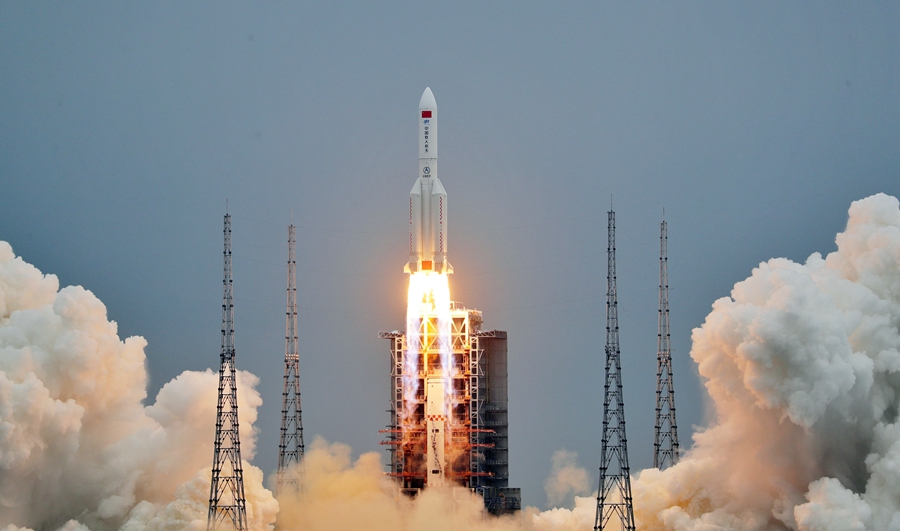
China Monitor is our brand-new program that analyses China’s economic and foreign policies. It also aims to predict the consequences of Beijing’s policy for the global economy, the EU as well as Central and Eastern European countries such as Poland.
Date: 31 December 2021 Author: Łukasz Kobierski
China-Russia Space Cooperation Continues
According to the information provided by the Russian national space agency Roscosmos and obtained by the Chinese daily The Global Times, China and Russia will sign a new space cooperation program for 2023-2027 in 2022. Several schemes are planned under it. This is yet another step in cooperation between Beijing and Moscow as well as rivalry with the US.

A couple of major projects are planned as a part of future China-Russia space cooperation. One of them is the establishment of an International Lunar Research Station (ILRS) by 2035. Another is the development of the ground segment of the two countries’ national satellite systems – Russia’s GLONASS system and China’s BeiDou Navigation Satellite System (BDS). A number of other projects of Roscosmos and the China National Space Agency (CNSA) have also been announced, but the details have not yet been disclosed.[1] China and Russia are working on an intergovernmental agreement concerning the project – it is expected to be signed in 2022.
On March 9, 2021, representatives of the space agencies of China and Russia signed an agreement on the development of research facilities on the lunar surface. A protocol on partnership in the expansion of a lunar station was signed then. Joint ongoing projects include the coordination of the Russian orbital mission Luna-Resurs-1, the Chinese lunar mission Chang’e-7 (exploration of the polar regions of the Moon), and the establishment of a data center for lunar and deep space exploration on Earth. On November 29, 2021, the Russian-Chinese roadmap for cooperation in satellite navigation for 2021-2025 was signed.[3]
The space cooperation between China and Russia presented above also affects the relations with the US. The Russians are threatening to abandon the International Space Station (ISS) research program. The US and Russia have been collaborating on this project for two decades. The ISS has been a symbol of diplomatic triumph between Washington and Moscow. Perhaps, the US authorities will also give up cooperation with Russia in this field. This may be due to the growing tensions with Ukraine and the friendship with China, which probably raises concerns about technology theft. Unlike Russia, China cannot participate in joint projects with the US under the 2011 Wolf Amendment, which prohibits NASA from cooperating with China without specific Congressional approval.[4] Space cooperation between Beijing and Moscow is a response to the US Artemis program, under which NASA collaborates with other foreign partners.
The disparity in expenditure on the space program is also worth mentioning. China spends about $8.9 billion on it, while Russia only about $2.7 billion. Although Russia, as the heir to the USSR, was at the forefront of space research, the dynamic growth of projects, expenses, and importance to the authorities in Beijing means that in this field Russia is not a research leader, but rather a partner. It may turn out that after acquiring appropriate know-how, China will engage Russia in less complex and non-critical projects.
[1] Exclusive: China, Russia to sign new 5-year space cooperation program, build intl lunar station by 2035: Roscosmos, https://www.globaltimes.cn/page/202112/1243731.shtml
[2] https://warsawinstitute.org/china-russia-agree-build-lunar-research-station/
[3] https://www.globaltimes.cn/page/202112/1243731.shtml
[4] https://carnegiemoscow.org/commentary/86094
Support Us
If content prepared by Warsaw Institute team is useful for you, please support our actions. Donations from private persons are necessary for the continuation of our mission.
All texts published by the Warsaw Institute Foundation may be disseminated on the condition that their origin is credited. Images may not be used without permission.















